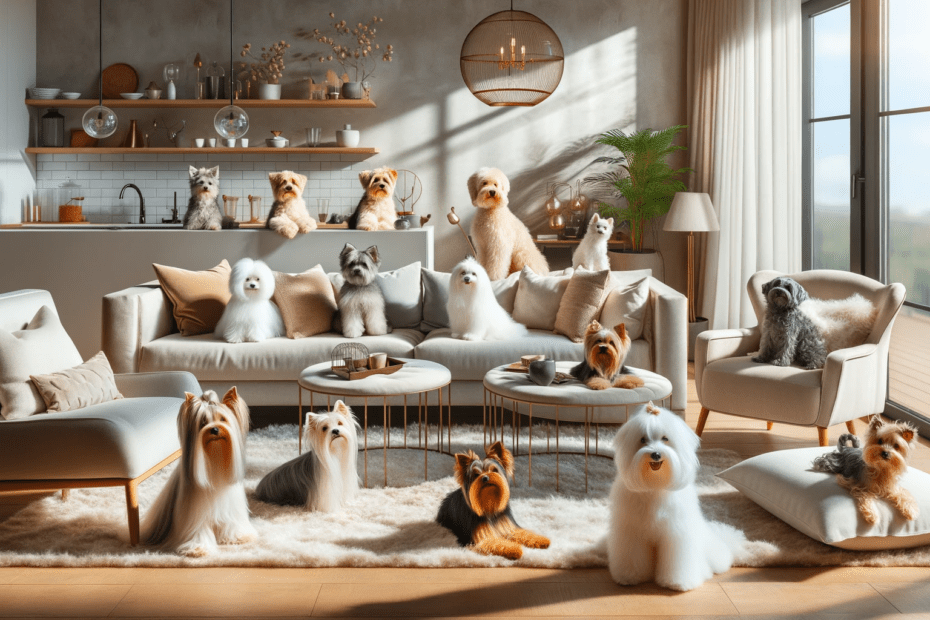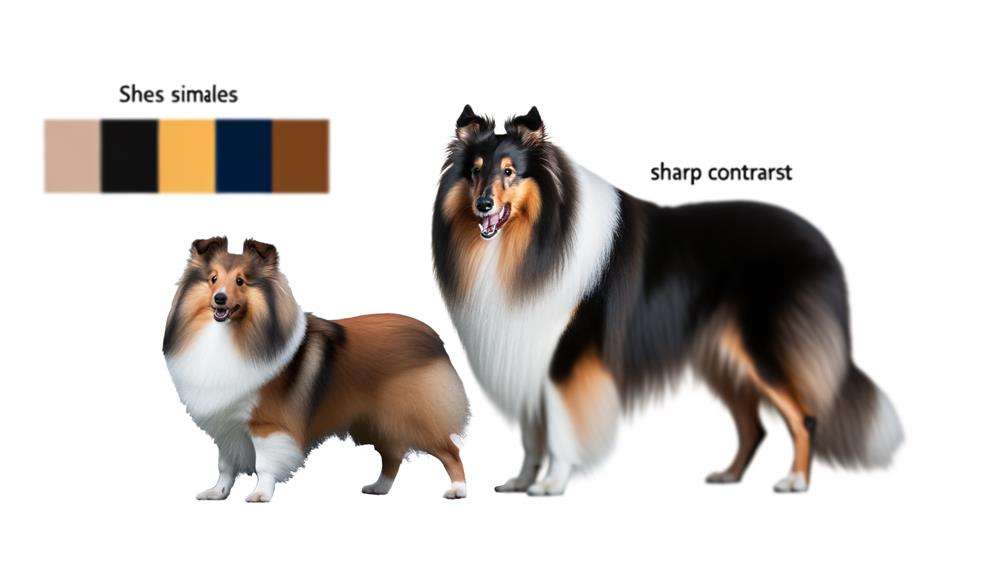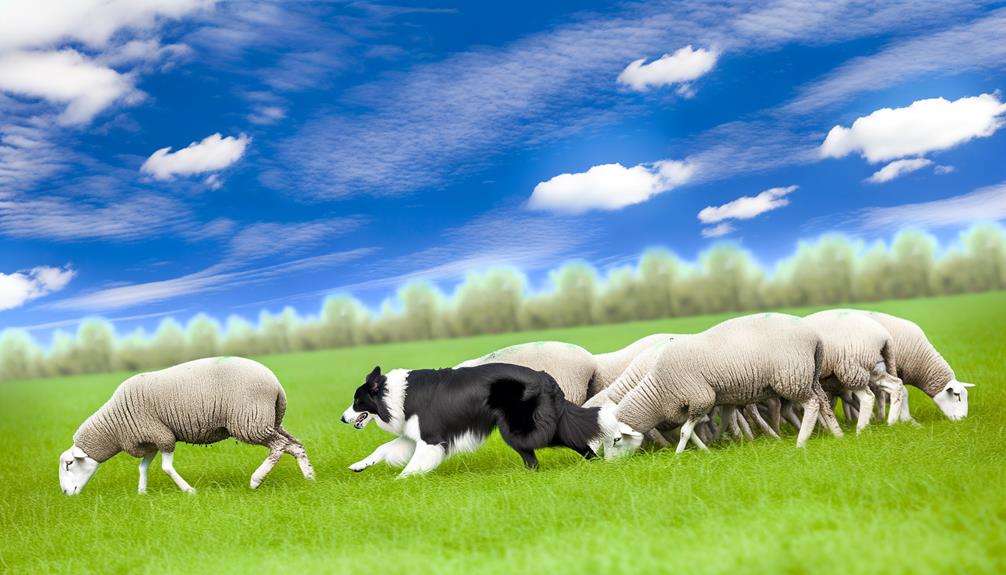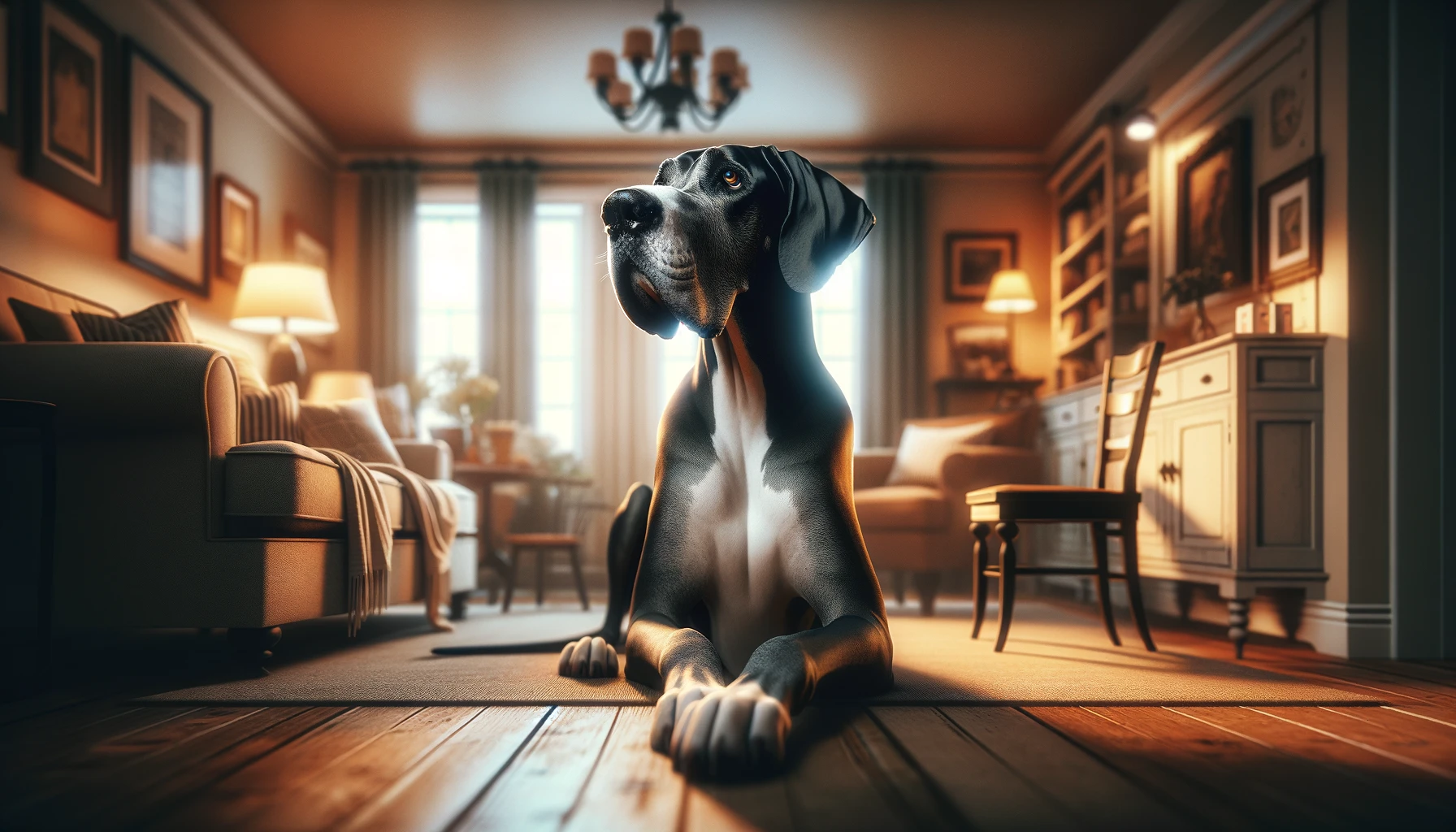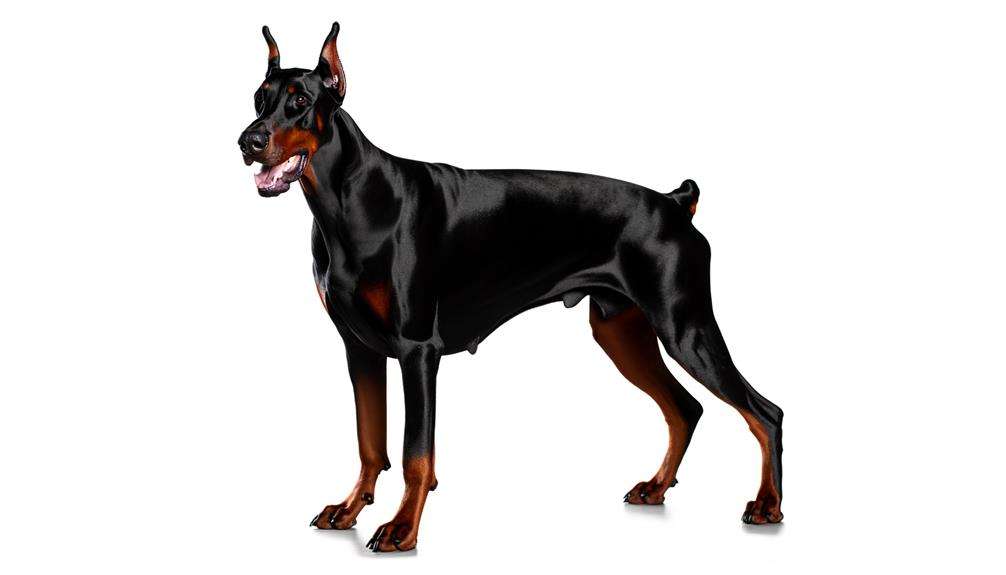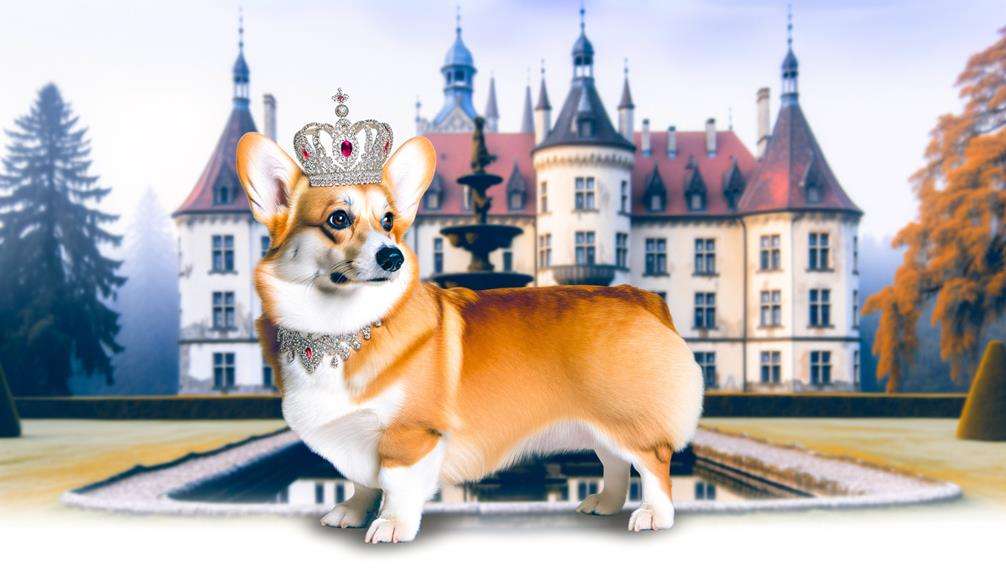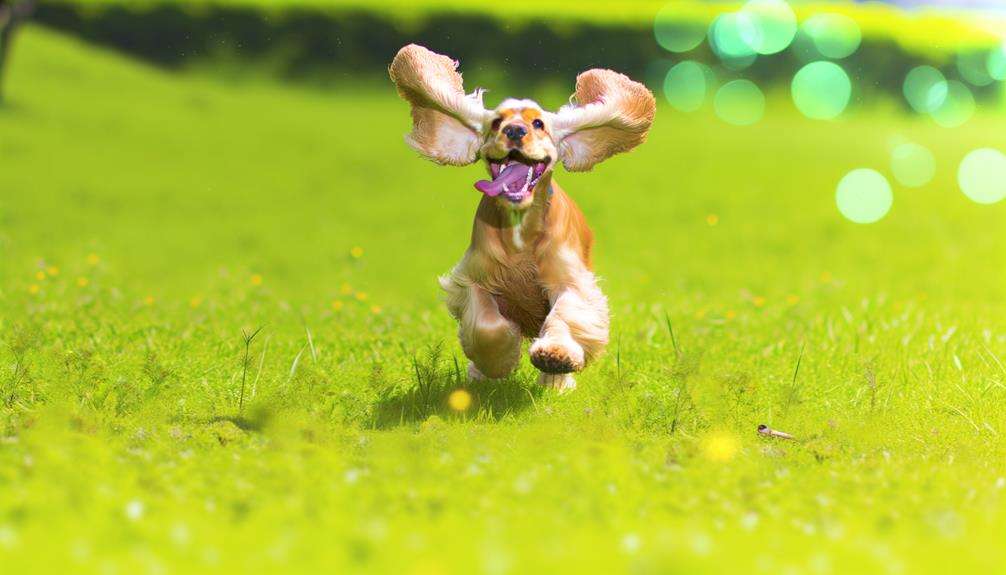Looking for a hypoallergenic dog that's perfect for apartment living? We've got you covered!
In this article, we'll provide you with a list of the top 12 breeds that are ideal for apartment dwellers and won't trigger your allergies.
From the playful Bichon Frise to the elegant Portuguese Water Dog, you'll find the perfect companion that fits your lifestyle.
So, get ready to meet your new best friend who will keep you company without making you sneeze.
Key Takeaways
- Bichon Frise, Portuguese Water Dog, Shih Tzu, Maltese, Yorkshire Terrier, Poodle, Havanese, Italian Greyhound, Basenji, and Chinese Crested are all hypoallergenic apartment dogs.
- Regular grooming is necessary for most hypoallergenic apartment dogs to prevent matting and tangles and keep their coat clean and allergen-free.
- Poodles are a popular choice for allergy sufferers due to their hypoallergenic coat that produces fewer allergens and their intelligence and trainability.
- Havanese dogs have low grooming requirements, adapt well to apartment living, and provide love and companionship.
Bichon Frise
If you're looking for a hypoallergenic apartment dog, the Bichon Frise is a great choice. This small and cheerful breed is known for its low-shedding and allergy-friendly coat. When it comes to grooming requirements, the Bichon Frise needs regular maintenance to keep its coat looking its best. Their curly fur should be brushed daily to prevent matting and tangles. Regular bathing is also necessary to keep their coat clean and free from allergens. Additionally, their ears should be checked and cleaned regularly to prevent infections.
In terms of exercise needs, the Bichon Frise is an active little dog that requires daily physical activity. Despite their small size, they've a surprising amount of energy and enjoy brisk walks, playtime, and interactive toys. Mental stimulation is also important for this intelligent breed, so incorporating training sessions and puzzle toys into their routine is highly recommended. However, it's important to note that the Bichon Frise isn't a high-energy breed and can adapt well to apartment living as long as their exercise needs are met.
Portuguese Water Dog
Looking for a low-shedding and hypoallergenic dog?
The Portuguese Water Dog might be the perfect choice for you. This breed is known for its curly, non-shedding coat, making it ideal for allergy sufferers.
With their friendly and outgoing nature, Portuguese Water Dogs aren't only great companions but also suitable for apartment living.
Low-Shedding and Hypoallergenic
The Portuguese Water Dog is a low-shedding and hypoallergenic breed that's well-suited for apartment living. If you're looking for a dog that won't leave a trail of fur throughout your home, the Portuguese Water Dog is a great choice.
These dogs have a curly, non-shedding coat that minimizes the amount of allergens in the environment. This makes them ideal for individuals with allergies or asthma. Not only are they low-shedding, but they're also considered hypoallergenic, meaning they're less likely to cause allergic reactions in sensitive individuals.
With their friendly and affectionate nature, Portuguese Water Dogs make wonderful companions for apartment dwellers who want a low-maintenance and allergy-friendly pet.
Ideal for Allergy Sufferers?
Consider the Portuguese Water Dog for an allergy-friendly pet option. This breed is known for being hypoallergenic, making it ideal for allergy sufferers. Here are four reasons why the Portuguese Water Dog is a great choice for managing allergies with dogs:
- Low-shedding coat: Portuguese Water Dogs have a curly or wavy coat that doesn't shed much. This means less dander and allergens in the air, reducing the risk of triggering allergies.
- Non-allergenic coat: Unlike other dog breeds, Portuguese Water Dogs have a coat that produces less dander, which is a common allergen for many people. This makes them a suitable option for those with allergies.
- Easy to groom: Their coat requires regular grooming to prevent matting, but it's relatively easy to maintain. Regular brushing and occasional professional grooming can help keep allergens under control.
- Active lifestyle: Portuguese Water Dogs are energetic and love being outdoors. Regular exercise can help reduce the severity of allergies by improving overall health and reducing stress levels.
With its hypoallergenic qualities and active nature, the Portuguese Water Dog is a fantastic choice for allergy sufferers looking for a furry companion.
Shih Tzu
If you're searching for a small and hypoallergenic apartment dog, the Shih Tzu is a popular choice. Known for their luxurious coat, Shih Tzus require regular grooming to keep their hair healthy and tangle-free. Their long, flowing locks can be styled in various ways, giving them a distinct and elegant appearance. However, grooming a Shih Tzu can be time-consuming, as their hair needs to be brushed daily to prevent matting. Many owners opt to keep their Shih Tzus in a shorter haircut to minimize maintenance.
In terms of personality traits, Shih Tzus are known for being affectionate and friendly. They enjoy spending time with their owners and are generally good with children and other pets. Although they're small in size, Shih Tzus have a big personality and love to be the center of attention. They're known for their playful nature and can brighten up any room with their lively antics.
Maltese
Continuing the discussion on hypoallergenic apartment dogs, let's explore the Maltese breed, known for its charming personality and low-shedding coat. If you're considering a Maltese as a pet, here are some key characteristics and grooming needs to keep in mind:
- Size: The Maltese is a small breed, typically weighing between 4-7 pounds. Their compact size makes them well-suited for apartment living and easy to travel with.
- Temperament: Maltese dogs are known for their friendly and affectionate nature. They love being around people and make wonderful companions for individuals or families.
- Exercise: Despite their small size, Maltese dogs still need regular exercise to stay healthy. Daily walks and playtime are essential to keep them happy and prevent obesity.
- Grooming: One of the standout features of the Maltese breed is its beautiful, long, and silky coat. However, this luxurious coat requires regular grooming to prevent matting and tangling. Daily brushing, monthly bathing, and occasional professional grooming are necessary to keep their coat in top condition.
With their adorable looks and delightful personality, Maltese dogs are a fantastic choice for apartment dwellers seeking a hypoallergenic companion. Just remember to dedicate time to their grooming needs to ensure they stay healthy and happy.
Yorkshire Terrier
When looking for a hypoallergenic apartment dog, you can't go wrong with the Yorkshire Terrier. This small and adorable breed isn't only known for its low-shedding coat, but also for its charming personality.
Yorkshire Terriers require regular grooming to keep their coat healthy and tangle-free. Their long, silky hair needs to be brushed daily to prevent matting, and regular trips to the groomer are necessary to maintain their signature 'show dog' look.
In terms of size, Yorkshire Terriers are small dogs, typically weighing between 4 and 7 pounds. This makes them a perfect fit for apartment living, as they don't require much space to thrive.
While they may be small in size, Yorkshire Terriers have moderate exercise needs. Daily walks and playtime in a secure area are usually enough to keep them happy and healthy.
With their hypoallergenic coat, small size, and manageable exercise needs, Yorkshire Terriers make excellent companions for apartment dwellers looking for a hypoallergenic dog breed.
Poodle
If you're looking for a hypoallergenic apartment dog, the Poodle is an excellent choice. Known for its hypoallergenic coat, this breed produces less dander and is less likely to trigger allergies in sensitive individuals.
Additionally, Poodles come in various sizes, making them adaptable to different living spaces. They've a friendly and intelligent temperament, making them great companions for apartment dwellers.
Poodle's Hypoallergenic Coat
Are you curious about why the Poodle's coat is considered hypoallergenic? Here are four reasons why:
- Low shedding: Poodles have hair instead of fur, which means they shed less. This reduces the amount of allergens in the environment.
- Minimal dander: Dander is the dead skin cells that can trigger allergies. Poodles produce less dander compared to other breeds, making them a better choice for allergy sufferers.
- Regular grooming: Poodles require regular grooming to maintain their hypoallergenic coat. This includes brushing, trimming, and occasional haircuts. Grooming helps to remove loose hair and prevent matting, reducing allergens in the environment.
- Intelligent and trainable: Poodles are known for their intelligence and trainability. This makes it easier to train them to tolerate grooming sessions, which helps in maintaining their hypoallergenic coat.
With their hypoallergenic coat and manageable grooming requirements, Poodles are a great choice for those with allergies who still want a canine companion.
Poodle's Size and Temperament?
The Poodle is a versatile breed known for its size and temperament. Poodles come in three different sizes: standard, miniature, and toy.
Standard Poodles are the largest, standing over 15 inches tall and weighing between 45 to 70 pounds. Miniature Poodles are smaller, measuring 10 to 15 inches tall and weighing around 15 to 17 pounds. Toy Poodles are the smallest, standing less than 10 inches tall and weighing only 4 to 6 pounds.
Despite their size differences, Poodles share common traits such as intelligence, trainability, and a friendly disposition. They're active dogs that require regular exercise to keep them mentally and physically stimulated.
Poodles also have high grooming requirements due to their curly, non-shedding coat, which needs regular brushing, professional grooming, and occasional trimming to maintain its appearance.
Havanese
You can consider the Havanese as one of the top hypoallergenic apartment dogs. Here are four reasons why:
- Low grooming requirements: The Havanese has a beautiful, silky coat that requires regular brushing to prevent matting. However, they don't shed excessively, making them a great choice for people with allergies. Regular grooming sessions will keep their coat healthy and free from tangles.
- Moderate exercise needs: Despite their small size, Havanese dogs have a moderate energy level and enjoy daily walks and playtime. They're adaptable and can adjust to apartment living as long as they get regular exercise. A few short walks or play sessions each day will keep them happy and healthy.
- Affectionate and adaptable: Havanese dogs are known for their friendly and affectionate nature. They thrive on human companionship and are highly adaptable to different living situations. Whether you live in a small apartment or a larger home, the Havanese will happily be by your side, providing you with love and companionship.
- Easy to train: Havanese dogs are intelligent and eager to please, making them relatively easy to train. They respond well to positive reinforcement methods and enjoy learning new tricks. With consistent training and socialization, you can have a well-behaved Havanese that fits perfectly into your apartment lifestyle.
Italian Greyhound
Moving on to the next hypoallergenic apartment dog breed, let's talk about the Italian Greyhound. Italian Greyhounds are small, elegant dogs that make great companions for apartment living. Despite their size, they've moderate exercise needs and require daily walks to keep them happy and healthy. They enjoy short bursts of playtime but are generally a low-energy breed.
When it comes to training, Italian Greyhounds can be a bit stubborn at times. However, they're intelligent dogs and respond well to positive reinforcement and consistency. Keeping training sessions short and engaging will help keep them interested and focused. Socializing them from a young age is also important, as they can be reserved around strangers.
In addition to regular exercise and training, Italian Greyhounds also need mental stimulation. Puzzle toys, interactive games, and obedience classes are all great ways to keep their minds active. They thrive on routine and structure, so providing them with a consistent environment is key.
Basenji
The Basenji is a breed known for its low-shedding coat characteristics, making it a potential hypoallergenic dog option for those with allergies. While no dog is completely hypoallergenic, the Basenji's short, fine coat minimizes the amount of dander and allergens that are typically associated with dog allergies.
If you're looking for a low-shedding, hypoallergenic companion, the Basenji could be a great choice.
Low-Shedding Coat Characteristics
When considering a low-shedding dog breed for your apartment, it's important to note the Basenji's unique coat characteristics. Here are some key points to consider:
- Benefits of low shedding dogs for apartment living: The Basenji's low-shedding coat means less hair to clean up, making it ideal for apartment living. This breed is also hypoallergenic, making it a great option for those with allergies.
- Minimal grooming required: The Basenji's short, fine coat requires minimal grooming. Regular brushing with a soft bristle brush will help remove any loose hairs and keep their coat looking shiny and healthy.
- Bathing considerations: Basenjis have a natural aversion to water, so bathing should be done sparingly. This can help maintain their natural oils and keep their coat in good condition.
- Regular inspections: Regularly check your Basenji's coat for any signs of skin issues, such as dryness or irritation. This will help catch any problems early on and ensure their coat stays healthy.
With their low-shedding coat and minimal grooming requirements, Basenjis make wonderful companions for apartment living.
Hypoallergenic Dog Breed?
To continue our discussion on low-shedding coat characteristics, let's explore the Basenji breed and determine if it's hypoallergenic.
When it comes to hypoallergenic dog breeds, the Basenji is often considered one of them. These dogs have a short, fine coat that doesn't shed excessively, making them a good choice for allergy sufferers. The Basenji's coat is also easy to groom, requiring minimal maintenance.
Owning a hypoallergenic dog like the Basenji can have several benefits. Firstly, their reduced shedding means there's less dander in the environment, which is a common trigger for allergies. Additionally, hypoallergenic dogs are less likely to cause allergic reactions, making them a suitable option for individuals with allergies or asthma.
Chinese Crested
If you're looking for a hypoallergenic apartment dog, consider the Chinese Crested. This unique breed is known for its hairless body and tufts of fur on its head, feet, and tail.
Here are four key things to know about Chinese Cresteds:
- Grooming needs: Despite their lack of hair, Chinese Cresteds still require regular grooming. Their skin can be sensitive, so it's important to keep it moisturized with specialized lotions or oils. You'll also need to clean their ears and brush their teeth regularly to maintain their overall health and hygiene.
- Exercise requirements: Chinese Cresteds may be small, but they still need daily exercise to stay happy and healthy. A couple of short walks or play sessions each day should suffice. However, keep in mind that they're prone to sunburn, so it's important to protect their skin with sunscreen or clothing when spending time outdoors.
- Temperament: Chinese Cresteds are known for their affectionate and playful nature. They bond closely with their owners and are often great with children and other pets. However, they can be a bit shy or reserved around strangers, so early socialization is key.
- Training: Chinese Cresteds are intelligent and eager to please, making them relatively easy to train. Positive reinforcement methods work best with this breed, as they respond well to praise and treats. Start training early to establish good behaviors and prevent any potential behavior issues.
Tibetan Terrier
Now let's delve into the Tibetan Terrier, another hypoallergenic apartment dog breed that requires regular grooming and exercise to stay happy and healthy.
The Tibetan Terrier has a thick, double coat that requires frequent brushing to prevent matting and keep it looking its best. As this breed doesn't shed much, it's a suitable choice for individuals with allergies. Grooming sessions should include regular baths, nail trims, and ear cleanings to maintain their overall hygiene.
In addition to grooming needs, the Tibetan Terrier also has exercise requirements that shouldn't be overlooked. Despite their small size, these dogs possess a moderate energy level and need daily mental and physical stimulation. Daily walks, playtime, and interactive toys are essential to keep them mentally and physically fit. A tired Tibetan Terrier is a happy and well-behaved one.
Keep in mind that regular exercise isn't only important for their physical health, but also for their mental well-being. With proper grooming and sufficient exercise, the Tibetan Terrier can thrive in an apartment setting and make a wonderful companion for those with allergies.
Brussels Griffon
Moving on to the Brussels Griffon, this hypoallergenic apartment dog breed also requires regular grooming and exercise to stay happy and healthy. Here are some key points to know about the Brussels Griffon:
- Personality: Brussels Griffons are known for their lively and spirited personalities. They're affectionate, loyal, and make great companions for individuals or families. Despite their small size, they've a big personality and love to be the center of attention.
- Training: Training a Brussels Griffon can be a bit challenging due to their stubborn nature. However, with consistency, positive reinforcement, and patience, they can be trained effectively. Early socialization and obedience training are essential to ensure they grow up to be well-behaved dogs.
- Exercise: Although Brussels Griffons are small, they still require regular exercise to keep them physically and mentally stimulated. Daily walks, playtime, and interactive toys can help fulfill their exercise needs. However, it's important to avoid overexertion due to their short snouts, which can cause breathing difficulties.
- Grooming: Brussels Griffons have a distinctive wiry coat that requires regular grooming. Brushing their coat at least once a week helps prevent matting and keeps their fur looking neat. Additionally, regular nail trims, teeth brushing, and ear cleaning are necessary to maintain their overall health and hygiene.
Frequently Asked Questions
What Is the Average Lifespan of a Bichon Frise?
The average lifespan of a Bichon Frise is around 12 to 15 years. They require regular grooming to maintain their hypoallergenic coat. Shih Tzus, on the other hand, need to be groomed every 4 to 6 weeks.
Are Portuguese Water Dogs Suitable for Families With Young Children?
Portuguese water dogs are suitable for families with young children. They are highly trainable and have a gentle nature. Their intelligence and love for water make them great companions for active families.
How Often Should a Shih Tzu Be Groomed?
To ensure your Shih Tzu's coat stays healthy and mat-free, groom them regularly. Train them to enjoy grooming by starting with short sessions and using positive reinforcement. Regular grooming has many benefits for Shih Tzus.
Can Maltese Dogs Be Left Alone for Long Periods of Time?
Yes, Maltese dogs can be left alone for long periods of time. However, it's important to train them to be comfortable with it. Consider providing them with toys, treats, and a safe space to make them feel secure.
Do Yorkshire Terriers Have a Tendency to Bark Excessively?
Yes, Yorkshire Terriers have a tendency to bark excessively. However, there are treatment options available to address this issue. Training your Yorkshire Terrier to control their barking can also be helpful.
Conclusion
In conclusion, when it comes to finding a hypoallergenic apartment dog, there are several breeds that can be considered. The Bichon Frise, Portuguese Water Dog, Shih Tzu, Maltese, Yorkshire Terrier, Basenji, Chinese Crested, Tibetan Terrier, and Brussels Griffon are all great options for those with allergies.
These breeds are known for their minimal shedding and low dander production, making them suitable for apartment living. Remember to research and consider the specific needs and temperaments of each breed before making a decision.
